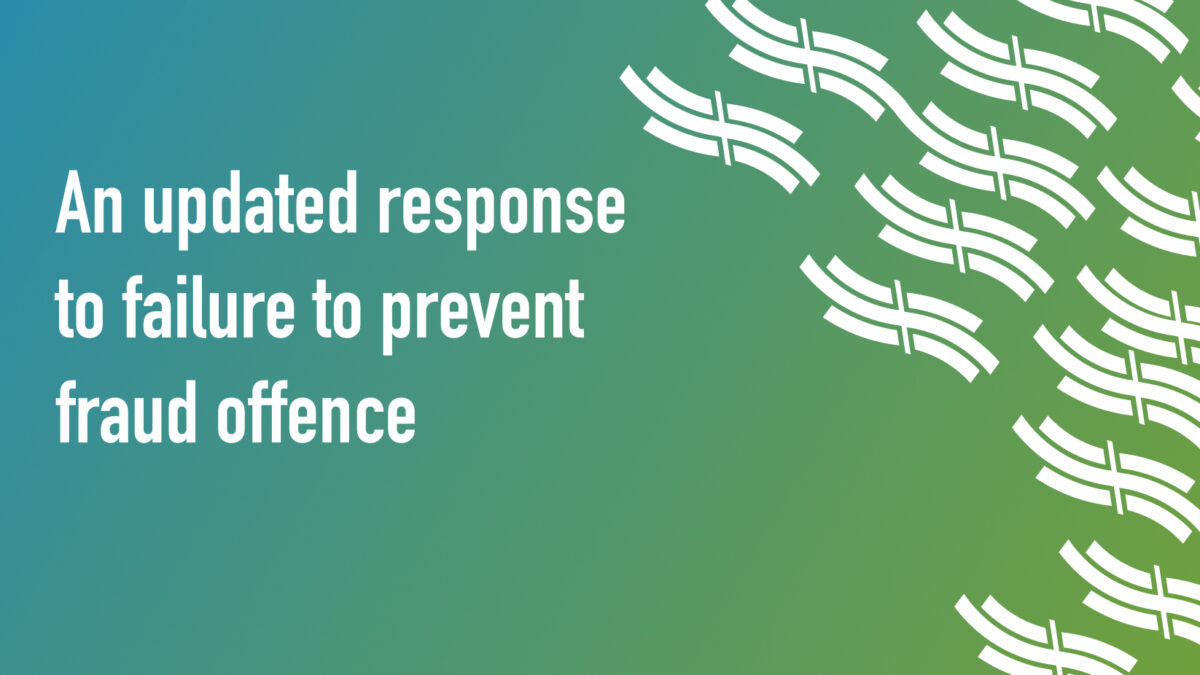Under the current government proposal the failure to prevent fraud offence excludes a significant percentage of the business population.
All businesses, whatever their size should have an obligation to prevent fraud which benefits them, and all businesses should be able to benefit from having the protection of having a statutory defence from prosecution if they have put in place reasonable procedures to prevent fraud.
Neither failure to prevent bribery or failure to prevent tax evasion have a similar SME exemption and both have 6 guiding principles for prevention which have successfully driven behavioural and cultural change across all businesses, whatever their size, to prevent the respective offence from occurring.
Any mismatch between the three ‘failure to prevent’ offences may bring uncertainty and potentially lead to confusion as to whom the offences apply to, and may lead businesses to restructure, to seek to limit its applicability.
Ensuring that the failure to prevent offences apply to all companies and that all use the same guiding principles for reasonable procedures will give businesses clarity.
Failure to prevent fraud is a significant step forward in the government’s approach, but limiting its applicability to large companies, means that this opportunity is not being maximised. Not all businesses will be able to protect themselves through good practice unless the law or the guidance is further amended.
Misaligned application rules and guidance will generate advice and activities that seek to understand the risks around application rather than focusing effort on the preventative steps that businesses can take to prevent bribery, tax evasion and fraud.
The Fraud Advisory Panel requests
1. That the offence is made applicable to all businesses whatever their size, or failing which,
2. That a specific reference be made within the failure to prevent fraud guidance so that all businesses can be made aware that whilst the risk of prosecution may not apply to all companies, at this time,



